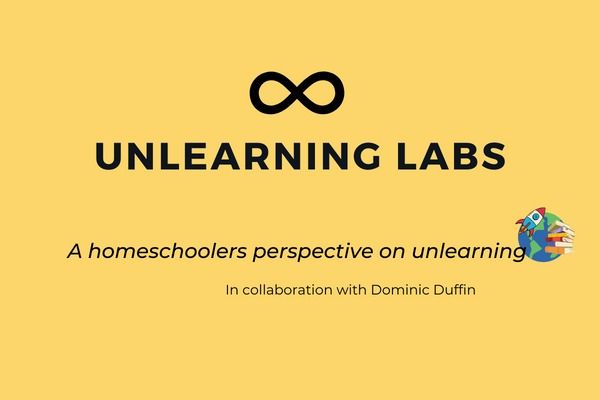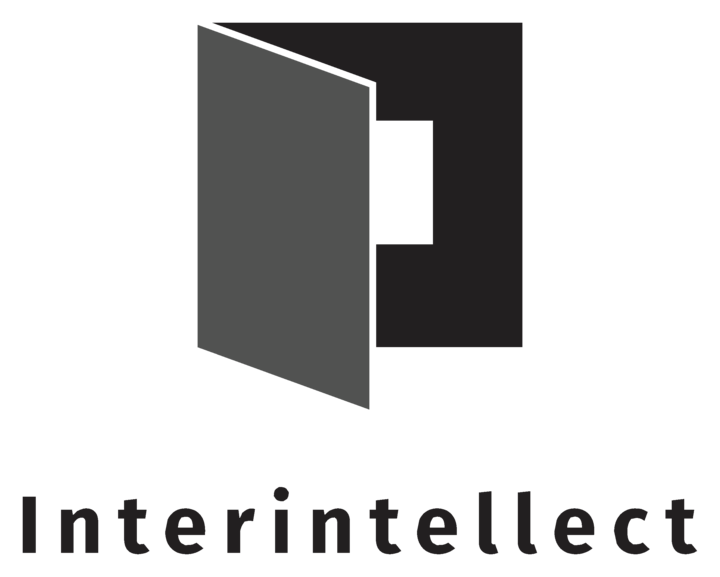"A homeschoolers perspective on unlearning" by Dominic Duffin

Originally written as a guest post for Unlearning Labs, by Dominic Duffin
Unlearning Labs, founded by Vishakha Kulkarni, is an experimental playground untangling the world of learning. Unlearning Labs is a newsletter focusing on how to learn better. We host learning circles, invite guest bloggers with a unique perspective on learning and continuously build a library with templates, guides, and resources with actionable takeaways.
In this article, we bring you our second guest to speak about homeschooling and his perspective on learning and unlearning. Dominic Duffin is a homeschooled full-stack developer, community builder and open-source software enthusiast with keen interests in economics, culture, society and lifelong learning. He is passionate about how homeschooling and alternative educational approaches can grow the potential of individuals and society in a symbiotic relationship with economic and technological progress
For this article, we focused on one question: How do homeschoolers learn?
We broke this question down into four pieces:
- The homeschooling way
- Comparisons with mainstream education
- Superstar achievers
- What do we need to unlearn about homeschooling
1. The homeschooling way
I was homeschooled. I like to look back to when I got interested in “Peak Oil”. We decided to do a project where I would write to company leaders to ask what they were doing to prepare.
Child-centered education: Homeschooling allows a child-centered education, optimized around the individual. Importantly, the child’s agency is respected and with help and encouragement, not coercion, from parents, relatives, and external teachers, they can find their own individual journey.
Learning through passion projects, going all-in on the child’s interests, having the agency to take an individualized approach, this is the homeschooling way.
Learning as a way of life: Homeschooled, children can learn how to learn, and learn happily and productively through life and play, unconstrained by “subjects”.
I did my Peak Oil project because I was interested in finding out what companies were doing. Along the way, I learned about business and the science around Peak Oil, and how to write a letter.
Going into tech, this learning experience serves me well. No-one goes to “tech school” and learns everything they need for a career. You learn and relearn on the job.
Going deep, early on: Homeschooling enables children’s learning to be optimized toward gaining mastery in their passions and interests, things that will feed into adulthood.
I built a real website at 15, when the British ICT curriculum was mostly about how to use Microsoft Office. In his interview with Primer, homeschooled artist and entrepreneur, Mya Davis, describes how learning with his uncle, a filmmaker, enabled him at six years old to go deep into film studies at a level most people would only experience in college.
Developing persistence and agency in the face of adversity: Homeschooling is still a minority pursuit. The experience includes navigating resistance and adversity in real time. Homeschoolers can learn they have agency, that dreams and ambitions are possible, that obstacles can be overcome.
I experienced officials seeking school truants, and forms without room for homeschoolers. On Unschooling Future, Sophia Kornienko tells her story of leaving Europe to pursue educational freedom for her children in the USA. Completely different scales of adversity to overcome. All excellent training in perseverance and defeating bureaucracies.
2. Comparisons with mainstream education
“Mama, I’m not learning anything”. Educator and homeschooler, Marta Obiols Llistar, starts her memoir with a quote from her then seven-year-old daughter, Afrika. What follows is a heartbreaking story of mainstream education stifling a child’s desire to learn.
Marta also writes about great teachers in the American public school system. But education in mainstream schools is the Ford Model T of education, optimized for mass production at an affordable price. It can’t replicate the child-centered approach that homeschooling offers. Even the greatest of teachers cannot be expected to realize the full potential of individuals while operating in a system of mass production.
3. Superstar achievers
Children following their passions are capable of so much more than mainstream education gives them credit for or allows time for. Cole Summers ran a farming business, renovated a house, and made a serious plan to solve an environmental catastrophe by 14. Laura Deming worked in a biology lab at 12, entered MIT at 14, and went on to become a venture capital founder. Not every child is going to be, or should be, a superstar achiever, but homeschooling allows the superstar achievers an outlet to reach their full potential.
4. What do we need to unlearn about homeschooling?
Homeschooled children don’t get socialized: Homeschooling offers a broad socialization in the real world, instead of a narrow socialization in a peer group of children the same age under adult authority.
Good socialization vectors include:
- Local homeschooling groups.
- Public transportation.
- Attending events.
- Introducing yourselves to people. People are interested in homeschoolers and random strangers can become an unexpected fount of information.
You need to be rich to homeschool: There’s more than a school’s worth of free learning opportunities in places like:
- YouTube
- Public libraries
- Real life
Money offers other options like private tuition but it’s a nice-to-have, not a requirement.
Homeschooled children just play games all day and don’t learn anything: Games are a sandboxed model of some part of the real world, an excellent learning tool. If a homeschooled child plays games all day, that’s probably okay.
Unlearning Thought
Children are not Model Ts. They are individuals with their own unique interests, passions, and dreams. They deserve an education optimized for them, not for mass production.
